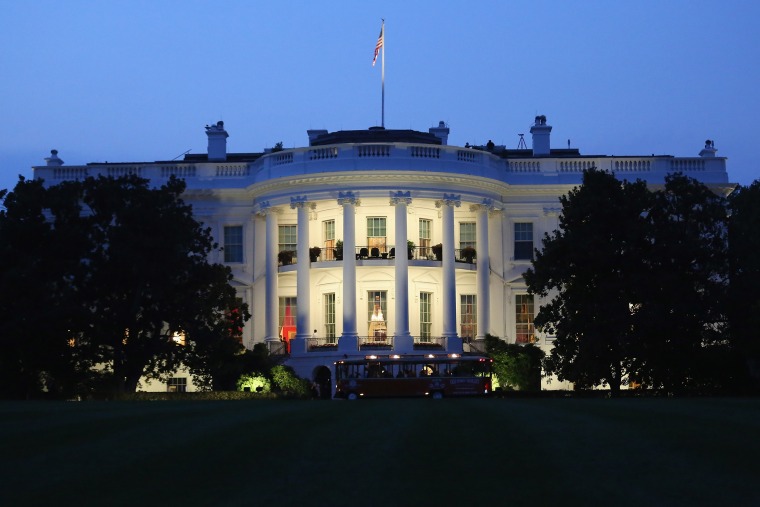Republicans have taken aim at the president's reliance on veto threats, which usually are spelled out in official White House documents known as "statements of administration policy." GOP leaders say Mr. Obama has proved he's not interested in working with them on bipartisan goals and instead is intent on blocking Republicans' agenda at every turn. "Despite Republicans reaching across the aisle to pass good legislation, the president has responded with veto threats President Obama has shown time and again that he is unwilling to work with Congress by threatening to veto bills before they even get a chance to reach his desk," House Majority Leader Kevin McCarthy, California Republican, wrote on his website last week. "The American people don't want vetoes. They want Washington to work. But it can only work if the President stops his obstruction and starts cooperating with Congress."
GOP tries to flip 'Party of No' label
The most obstructionist party in modern American history to suddenly complaining about obstructionism, as the GOP relies heavily on mass amnesia.

President Obama's veto pen hasn't had much use in recent years. There was one veto in 2009 and another in 2010, but they were both technical objections, not evidence of a genuine conflict between Congress and the White House. From 2011 to 2014, when congressional productivity collapsed to historic low, Obama didn't have anything to veto -- in part because very few bills reached his desk at all.
This year, we've already seen two vetoes, but just as interesting is the number of veto threats. The president issued four such warnings last week, and the Washington Times' count puts the total for 2015 so far at 26 veto threats, "by far the most of any president at this point in a new legislative session," at least since political scientists started keeping track 30 years ago.
Apparently, it's getting on Republicans' nerves.
The House Majority Leader wasn't kidding -- he's actually accusing the White House of "obstruction." Senate Majority Leader Mitch McConnell (R-Ky.) and Fox News have recently used similar rhetoric.
You can almost hear irony crying somewhere in a corner.
It's understandable that Republicans are a little sensitive on the point. Democrats have gone after the GOP repeatedly in recent years as the "Party of No," after conservative lawmakers effectively ruled out the possibility of bipartisan governance -- at times even rejecting their own ideas after the president endorsed them.
But now that Republicans control Congress, and GOP lawmakers are lining up one far-right bill after another, the White House seems eager to send a message to Capitol Hill: don't bother investing too much time into bad ideas that won't become law.
This is not, by any fair measure, obstructionism. On the contrary, in his State of the Union address, Obama presented all kinds of popular ideas -- the kind that would ordinarily receive consideration in Congress -- and urged lawmakers to consider them. Not surprisingly, the Republican majority promptly ignored the president's proposed agenda.
They did the same in 2014. And 2013. And pretty much every day since Obama's inauguration in 2009.
Indeed, perhaps the most amusing angle to these new complaints is that Republicans are effectively accusing the president of acting like them. It's almost as if the GOP is getting a taste of its own medicine and they're irritated by its bitter taste.
Regardless, if Republicans want their rhetoric to be credible, they're going to need new talking points. The most obstructionist party in modern American history is suddenly complaining about obstructionism, hoping to shed the "Party of No" label. Strategies that rely heavily on mass amnesia, however, are an inherently risky proposition.